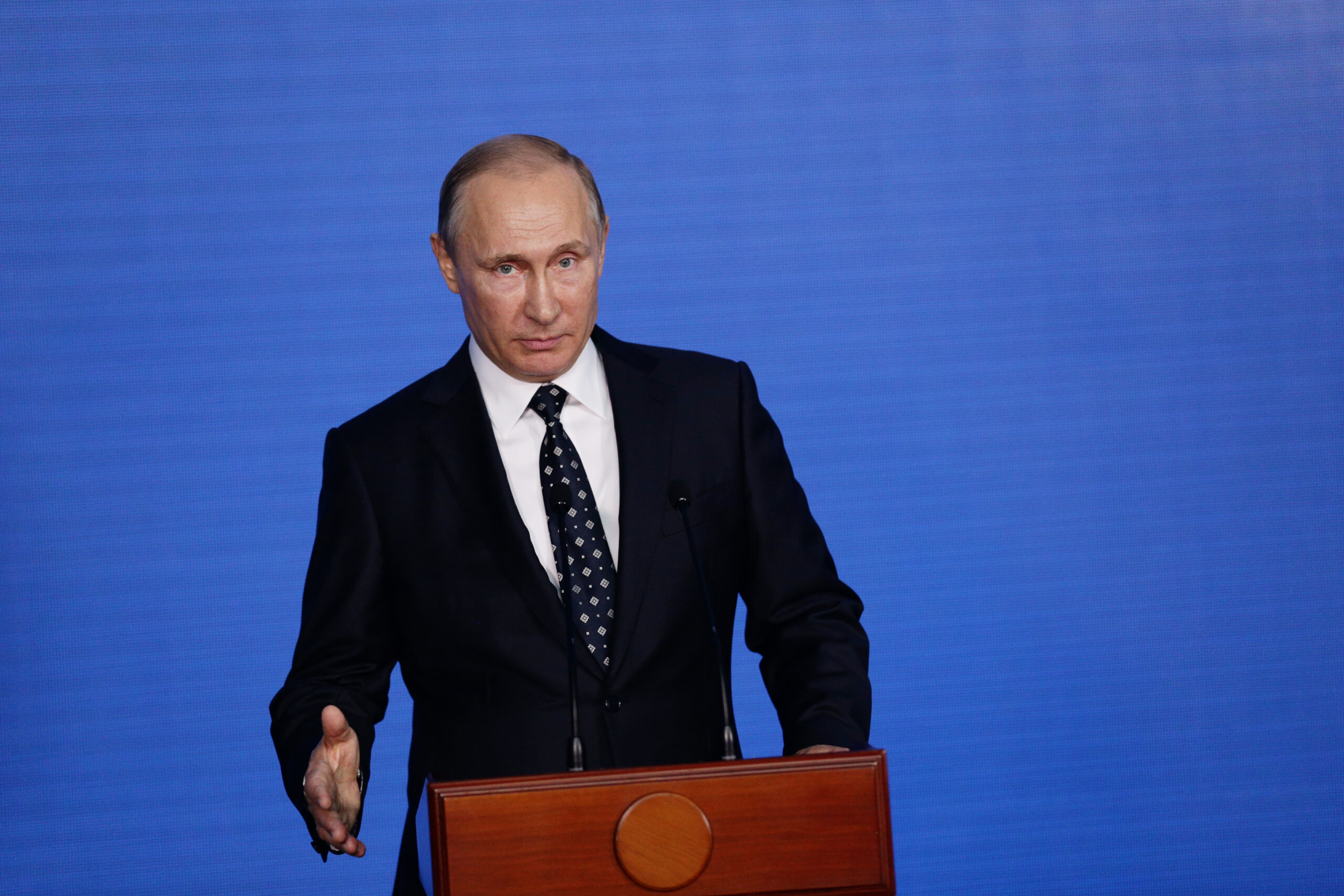Putin, Put’n, and Peace in Ukraine
A mythological monster is haunting the fevered imagination of the West. Its name, as pronounced by the US media and political establishment, is “Put’n.” It has the body of the bear, the arms of an octopus, and the head of a super-intelligent extraterrestrial. Its other characteristics are equally contradictory. It is an ethnic chauvinist whose chief followers include strikingly large numbers of national minorities and whose publicly stated idea of Russia is explicitly multiethnic. It is reckless and aggressive to the point of insanity, yet has repeatedly failed to seize opportunities for successful aggression.
The monster Put’n of the Western imaginary is utterly cynical and interested only in its own domestic power and profit, but at the same time willing to run colossal personal risks to expand its nation’s power. It rules over a country that is supposedly a pathetic, impoverished wreck—and at the same time a mortal threat to some of the richest and most powerful countries on earth. It is a congenital “disruptor” dedicated to overthrowing the “status quo,” that has at the same time defended the status quo in the Middle East against catastrophic attempts to overthrow it by America, self-proclaimed defender of world order and the status quo.
This fantastic creature is related to President Vladimir Putin of Russia—but only distantly. The real Putin is certainly ruthless, cynical, and cold-blooded, but also highly cautious and level-headed—too much so, in the view of more ambitious and hotheaded members of the Russian elite. He has never once taken an international action that actually risked war with the West or local Russian defeat. This should give confidence that we can emerge from the present crisis without disaster.
By no means complete confidence, though, for in observing Putin I have often recalled a remark by John Maynard Keynes about Georges Clemenceau, French prime minister during World War II: that he was a deeply cynical individual with only one illusion—France. There can be no doubt that Putin identifies completely with the glory and power of Russia, which he is probably (like many such leaders) genuinely psychologically incapable of distinguishing from his own.
Read the full article in The Nation.
